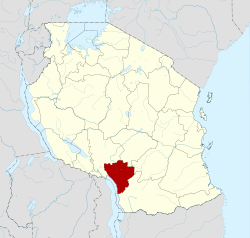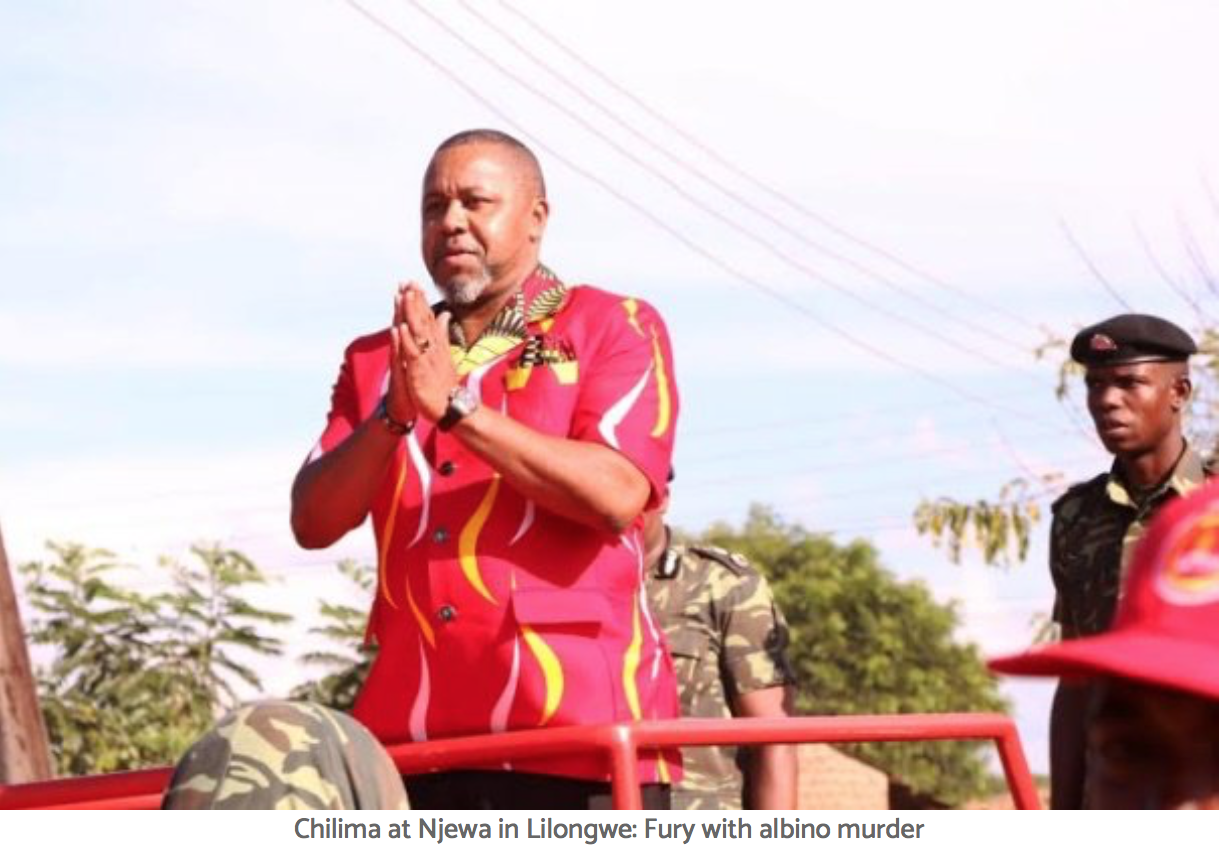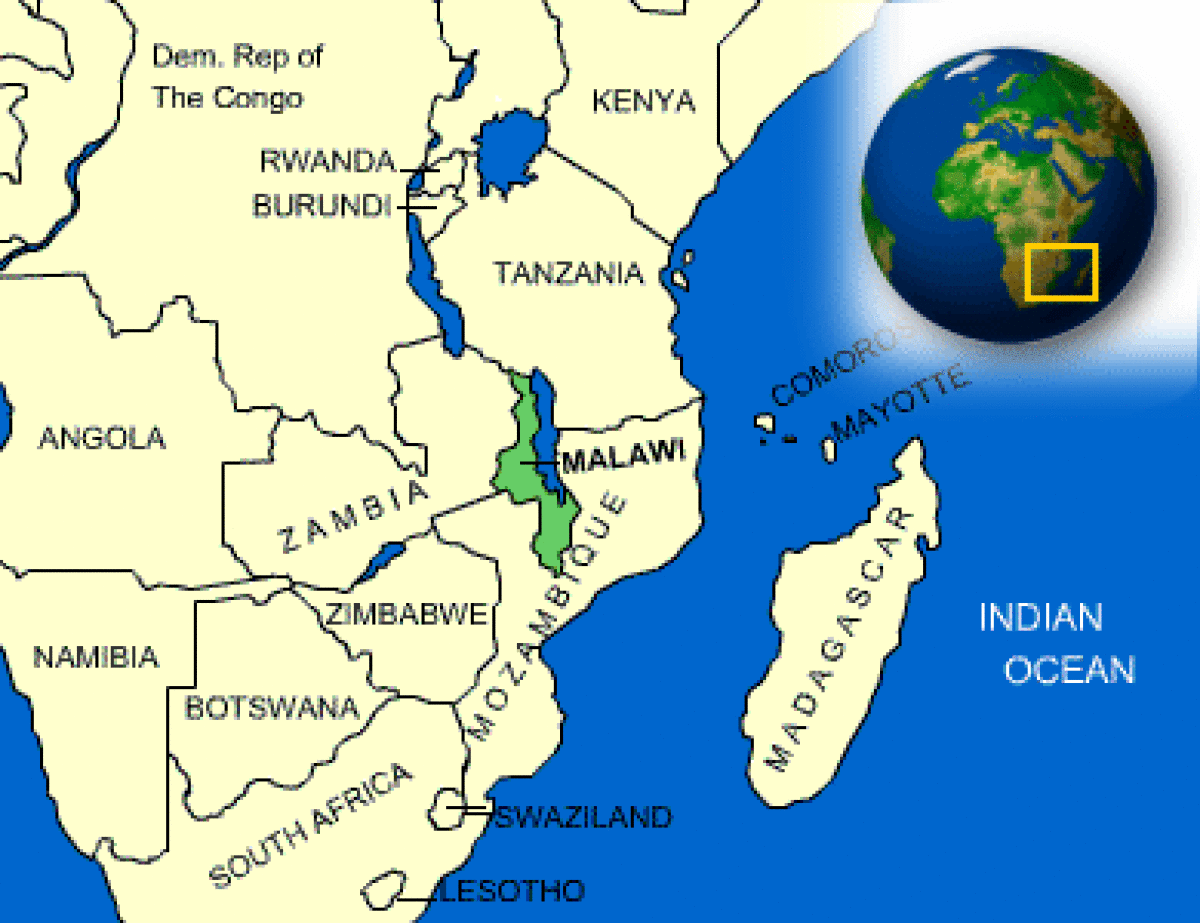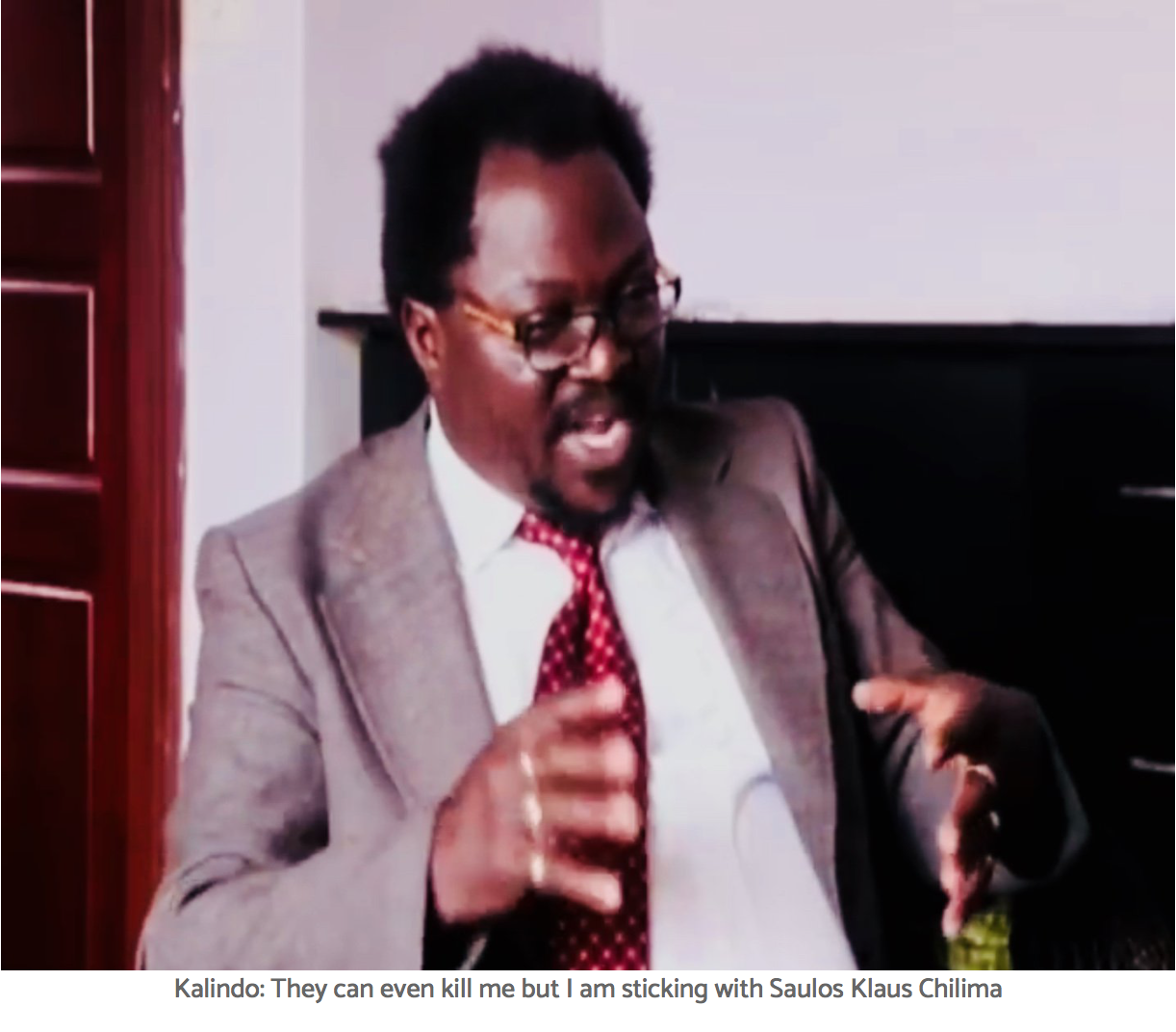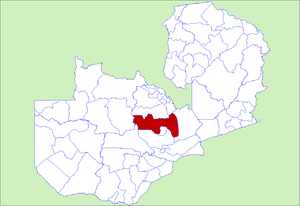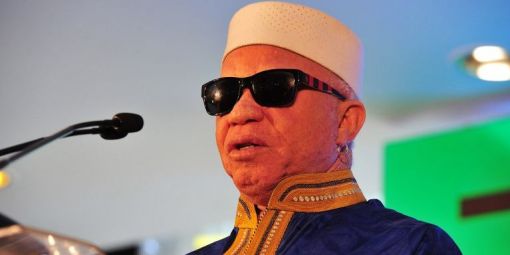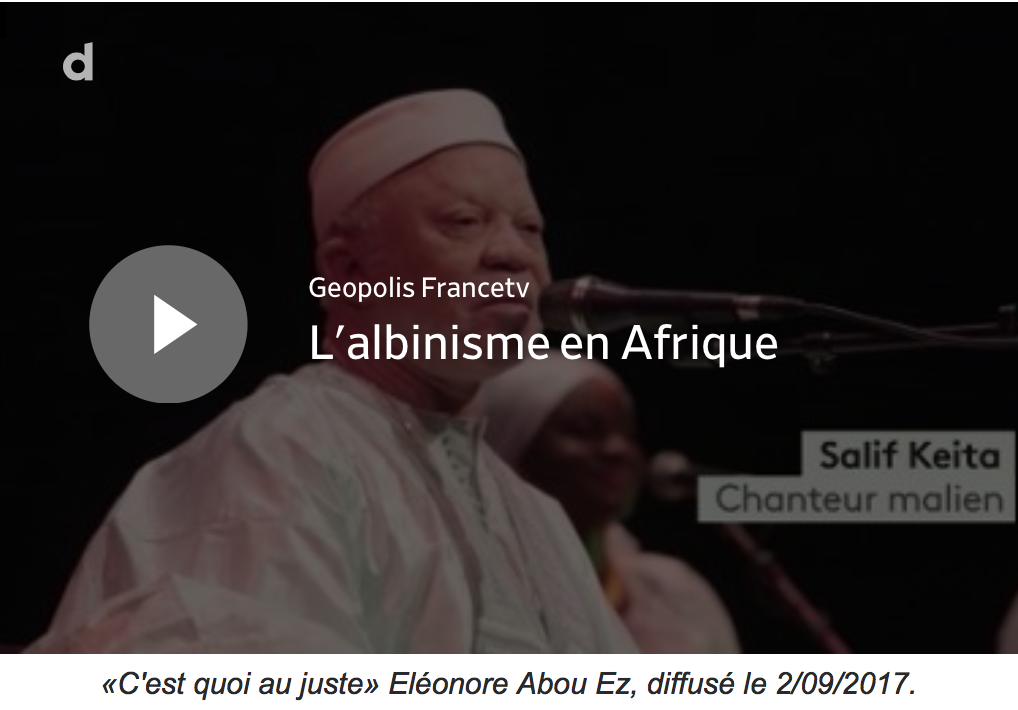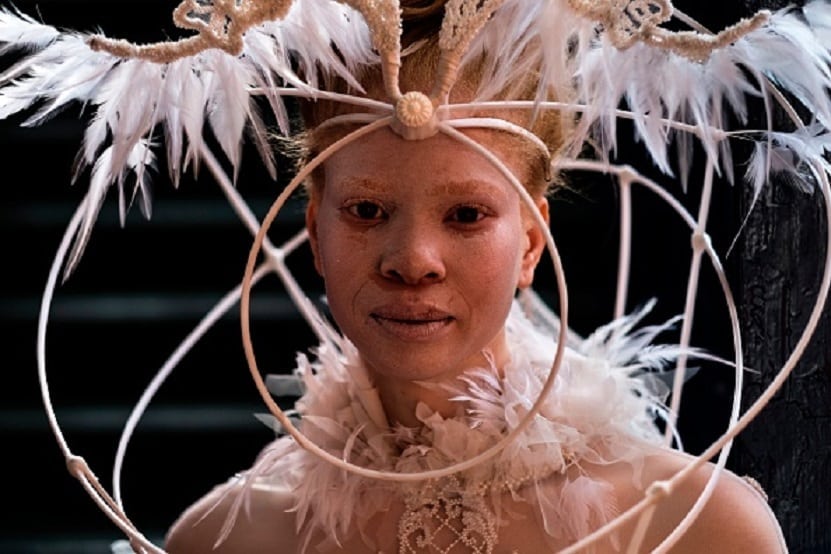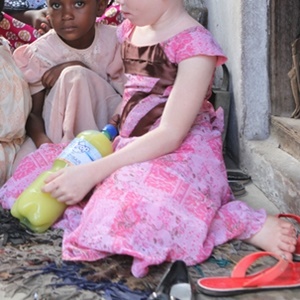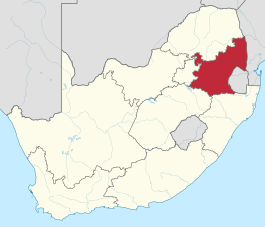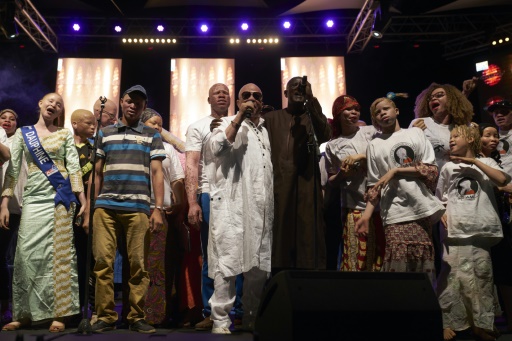
Picture shows famous Malian singer Salif Keïta (center) and members of his foundation giving a live concert in protest against the ritualistic murdering of albinos in Africa – Fana, Mali, on November 17, 2018. AFP | MICHELE CATTANI
Le chanteur malien Salif Keita (au centre) et les membres de sa fondation durant un concert destiné à dénoncer les meurtres rituels d’albinos en Afrique, le 17 novembre 2018 à Fana, au Mali | AFP | MICHELE CATTANI
Au Mali, un concert événement de Salif Keïta rend hommage à une fillette albinos assassinée
Mali: Salif Keïta gives a live concert in honor of a murdered young girl with albinism
Published: November 18, 2018
By: Kassim Traoré – Fana (Mali) (AFP)
Saturday night, legendary Malian singer Salif Keïta gave a live concert, presenting his latest album, in Fana, a small town in the south of Mali, where a 5-year old girl with albinism was found dead – murdered – in May of this year. The live concert was in honor of all murdered albinos in Africa and in protest against these horrible crimes.
In a football stadium packed to capacity in this small town of some 20,000 inhabitants – 120 km from the capital Bamako – 69-year old Salif Keïta, himself albino, was accompanied by Ismaël Lô (from Senegal), Bera, an albino artist from Georgia, Malian comedian Yao and singers Safi Diabaté (Mali) and Maah Koudia Keït (Senegal), all fighting for the noble cause of people living with albinism in Africa.
On May 13, a five-year old girl, Ramata Diarra, was kidnapped by armed men while sleeping at her parents’ place. Her dead body was found a few hours later, beheaded, next to a mosque. People immediately linked her death to a ritual killing in view of the forthcoming elections in the country. (….)
Translated by the webmaster FVDK
For more information see ‘Albino girl abducted and killed in Mali’, dated May 16, 2018 and related articles – on the present website.
The original article, in French, is much longer and reads as follows:
La légende de la musique africaine Salif Keïta a présenté samedi soir son nouvel album à Fana, petite ville du Mali où une fillette albinos de cinq ans a été assassinée en mai, lors d’un concert hommage destiné également à dénoncer les meurtres rituels d’albinos en Afrique.
Dans un stade de football archi-comble, un événement jamais vu dans cette localité de quelque 20.000 habitants située à 120 km de Bamako, le musicien de 69 ans, atteint lui-même d’albinisme, s’était entouré du Sénégalais Ismaël Lô, de l’artiste géorgien albinos Bera, de l’humoriste malien Yaro ou encore des chanteuses malienne Safi Diabaté et sénégalaise Maah Koudia Keït, militante elle aussi de la cause des personnes albinos.
Le 13 mai, la petite Ramata Diarra, cinq ans, avait été enlevée en pleine nuit par des hommes armés alors qu’elle dormait dans la cour de la concession familiale. Son corps décapité avait été retrouvé quelques heures plus tard à côté d’une mosquée. Des associations avaient alors dénoncé un “crime rituel” à l’approche de l’élection présidentielle.
“Pourquoi ôter la vie d’une innocente, d’une fillette de cinq ans? Pourquoi s’attaquer aux albinos? Nous sommes comme tous les autres humains. Nous ne voulons plus voir ça au Mali. Il faut que nos autorités prennent des dispositions, parce que désormais, nous n’allons plus nous taire”, a dit sur scène Salif Keïta.
Chaque année, des dizaines d’albinos sont victimes en Afrique d’attaques, tués et amputés de leurs membres qui sont ensuite utilisés pour des rituels censés apporter richesse et chance.
“Aujourd’hui, tout le monde sait qu’une fillette de cinq ans a été assassinée à Fana parce qu’elle est albinos. Le monde s’est mobilisé pour la cause de ma fille, que ce monde ne baisse plus les bras afin que les albinos puissent vivre en paix partout dans le monde”, a confié à l’AFP, en marge du concert, la mère de la fillette, Diarra Awa Touré.
“Au début je me sentais seule, mais avec ce grand concert et les condamnations faites devant le monde, je ne me sens plus seule”, a-t-elle ajouté.
– ‘Dernier album’ –
Dans l’espace réservé aux invités, juste devant la scène, Ousmane Wélé Diallo, tout de blanc vêtu, explique être venu de Bamako avec sa femme et ses enfants pour “suivre le concert et soutenir notre cause en rendant hommage à Ramata Diarra”. “Je n’aime pas quand il y a trop de lumières, surtout les ampoules géantes de la scène, mais ce soir j’accepte pour notre cause”, ajoute le père de famille, qui comme de nombreux albinos souffre de problèmes de vue.
“Nous sommes ici pour que ce qui est arrivé à Ramata ne se reproduise plus jamais, et cela doit être le combat de nous tous. Plus jamais ça à Fana, au Mali, en Afrique et dans le monde”, a lancé depuis la scène Ismaël Lô. “Personne ne doit sacrifier un albinos pour son pouvoir, personne ne doit vendre les cheveux ou les organes d’un albinos”, a exhorté Safi Diabaté. “Je suis Fana, je suis Ramata, je suis toutes les victimes des ignominies de certains assoiffés de pouvoir”, a ajouté le slameur malien Karim Diallo.
Alors que la soirée est déjà bien avancée, Salif Keïta monte sur scène pour un show de 45 minutes au cours duquel il défend son album “L’autre blanc”, son dernier selon lui, pour lequel il a fait appel à de vieux complices comme l’Ivoirien Alpha Blondy ou la Béninoise Angélique Kidjo, tout en multipliant les clins d’oeil à la jeune génération.
“Je voulais dire au revoir à tous mes fans, parce que si je vais peut-être encore faire de la musique par-ci par-là, je ne prendrai plus le temps de faire un album”, a-t-il confié à l’AFP, estimant avoir “droit à un repos” après 50 ans de carrière.
Source:
Au Mali, un concert événement de Salif Keïta rend hommage à une fillette albinos assassinée
Related article:
Mali: Salif Keïta rend hommage à une fillette albinos assassinée

Malian singer Salif Keïta performing at a live concert in Fana, Mali, on November 17, 2018. Le chanteur malien Salif Keita lors d’un concert de sensibilisation aux violences contre les albinos, le 17 novembre 2018 à Fana (Mali), où une fillette albinos âgée de 5 ans a récemment été assassinée.
© MICHELE CATTANI / AFP
Published: November 19, 2018 – 14:35 PM
By: Géopolis (avec AFP )
Saturday night, legendary Malian singer Salif Keïta gave a live concert, presenting his latest album, in Fana, a small town in the south of Mali, where a 5-year old girl with albinism was found dead – murdered – in May of this year. The live concert was in honor of all murdered albinos in Africa and in protest against these horrible crimes. (…)
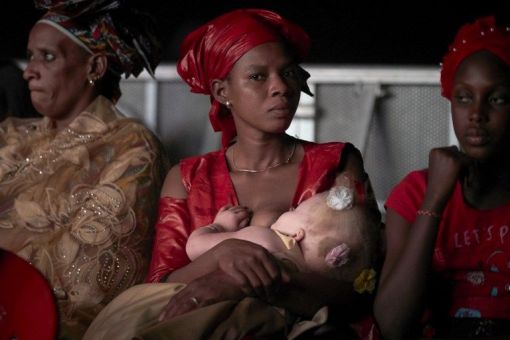
A young Malian woman holds her albino baby at a concert given by famous Malien singer Salif Keïta. Une Malienne tient son bébé albinos alors qu’elle assiste au concert de Salif Keita visant à sensibiliser le public aux violences contre les albinos le 17 novembre 2018 à Fana. © MICHELE CATTANI / AFP
“We are here to prevent that what happened to Ramata will ever happen again. This is our common struggle. Never again in Fana, in Mali, in Africa, in the world.”, Ismaël Lô shouted on stage. “Nobody should sacrifice a person with albinism to become richer or stronger; nobody should sell the hair or organs of an albino”, Safi Diabaté cried. “I am Fana, I am Ramata, I am the victim of all these atrocities committed by power-hungry people”, Karim Diallo added.
Translated by the webmaster FVDK
«Nous sommes ici pour que ce qui est arrivé à Ramata ne se reproduise plus jamais, et cela doit être le combat de nous tous. Plus jamais ça à Fana, au Mali, en Afrique et dans le monde», a lancé depuis la scène Ismaël Lô. «Personne ne doit sacrifier un albinos pour son pouvoir, personne ne doit vendre les cheveux ou les organes d’un albinos», a exhorté Safi Diabaté. «Je suis Fana, je suis Ramata, je suis toutes les victimes des ignominies de certains assoiffés de pouvoir», a ajouté le slameur malien Karim Diallo.
Alors que la soirée est déjà bien avancée, Salif Keïta monte sur scène pour un show de 45 minutes au cours duquel il défend son album L’autre blanc,son dernier selon lui, pour lequel il a fait appel à de vieux complices comme l’Ivoirien Alpha Blondy ou la Béninoise Angélique Kidjo, tout en multipliant les clins d’œil à la jeune génération.
«Je voulais dire au revoir à tous mes fans, parce que si je vais peut-être encore faire de la musique par-ci par-là, je ne prendrai plus le temps de faire un album», a-t-il confié à l’AFP, estimant avoir «droit à un repos» après 50 ans de carrière.
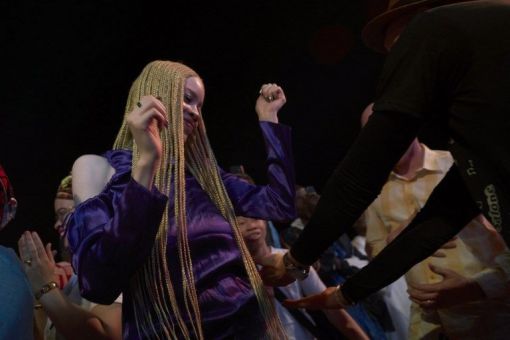
A young woman with albinism dances at a live concert given by famous Malian singer Salif Keïta in Fana (Mali) where recently a 5-year old girl with albinism was murdered. Une jeune femme malienne albinos danse lors du concert du chanteur malien Salif Keita, le 17 novembre 2018 à Fana, où une fillette albinos âgée de 5 ans a récemment été assassinée. © MICHELE CATTANI / AFP
Source: Mali: Salif Keïta rend hommage à une fillette albinos assassinée
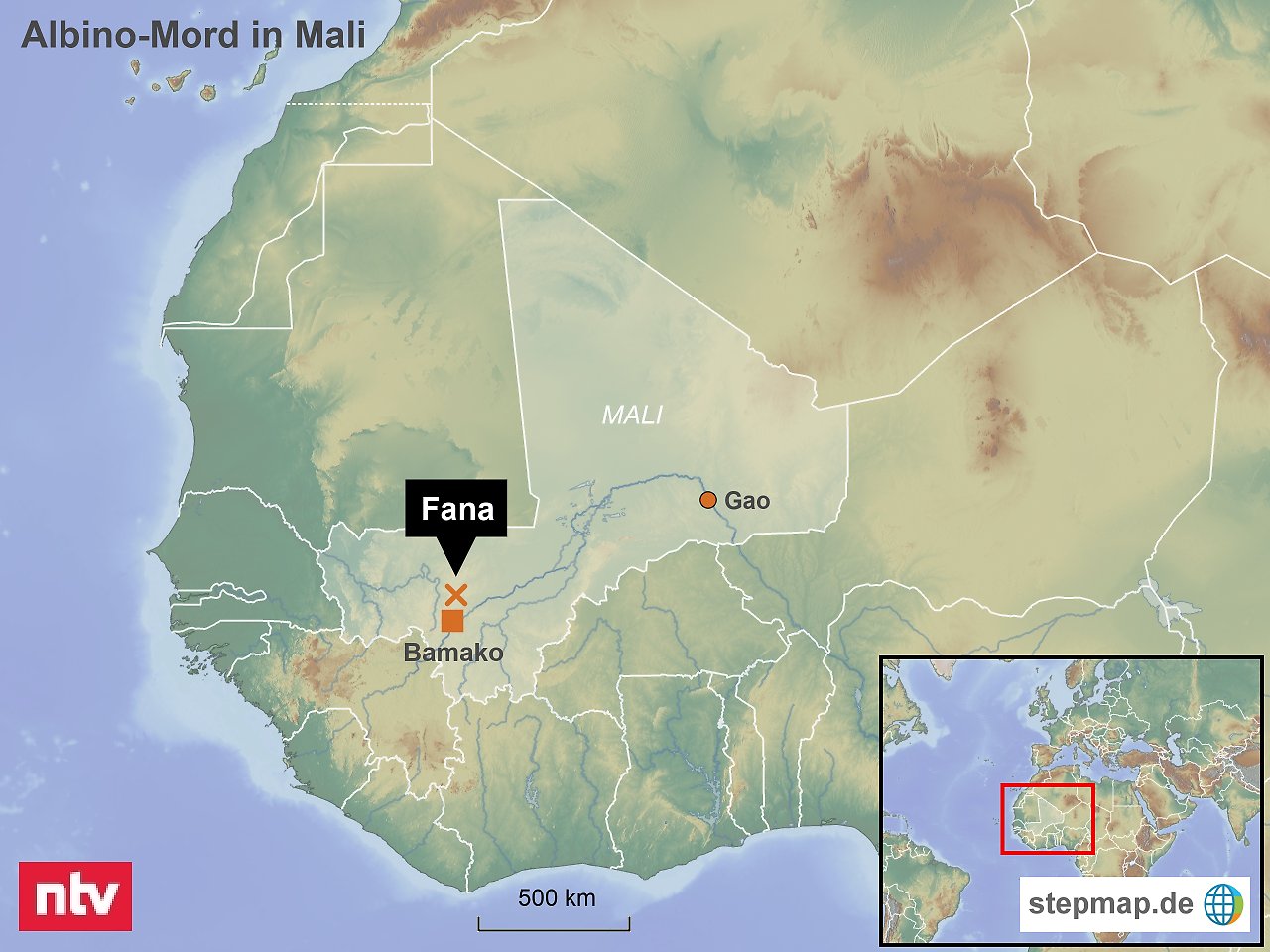
In Fana, Mali, a five-year old girl with albinism was murdered in May 2018.

